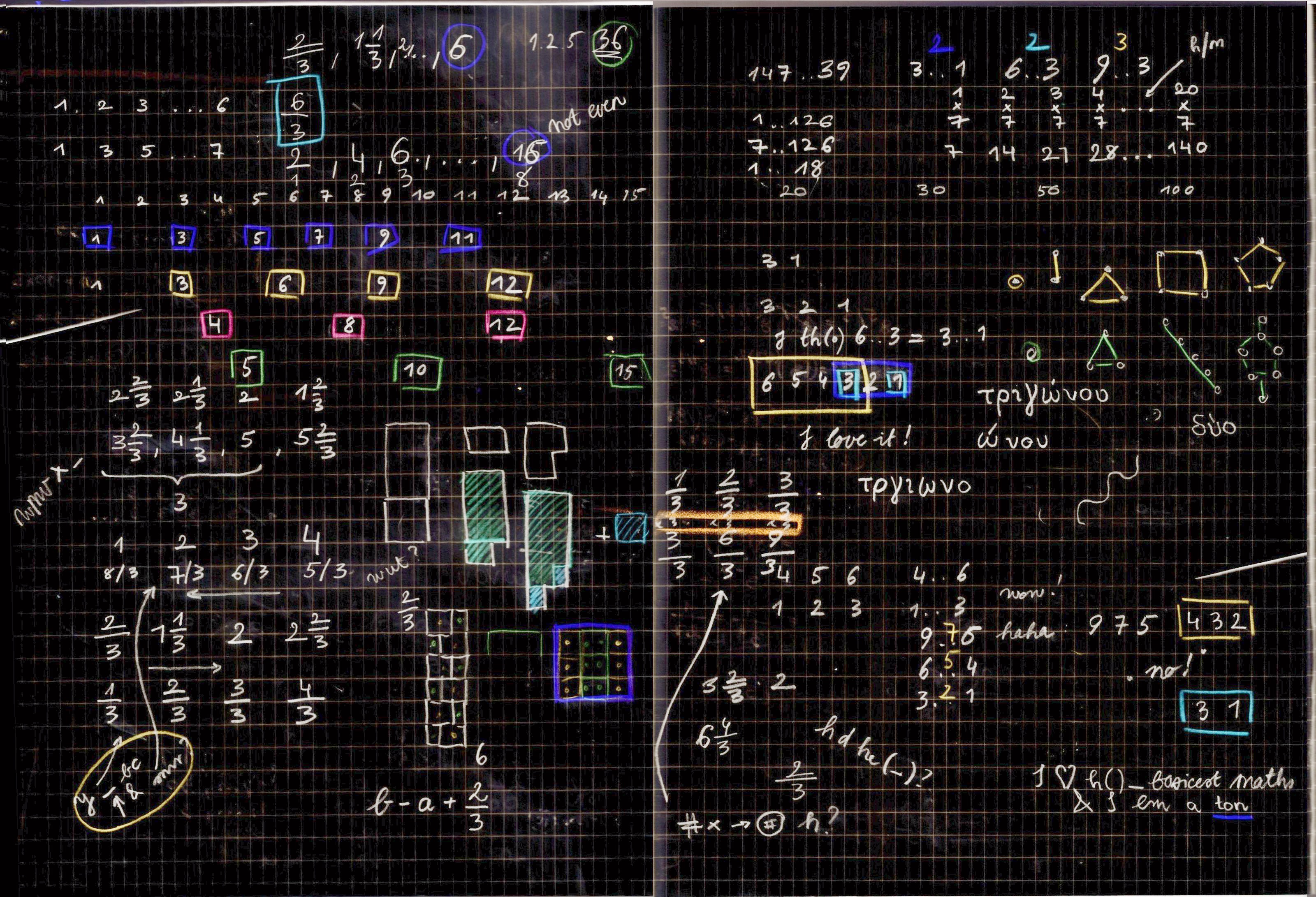Pen and paper mathematics
Sing your life #
Celestial mechanics is a beautiful expression!
l'histoire et du développement du mécanique du céleste
LE MOUVEMENT CÉLESTE!
To save mathematical ideas, and insights, and share them on the blog, is an idea I found yesterday. It seems like a good idea. Write down what you've done - by Terence Tao
In this spirit, here are a few perceptual exercises that occured to me, so I saved them:
- [ ] computer agent speech in differetn alnguages (keeping it up)
- [ ] recall problems u are working on (ping pong puzzle, aha! puzzles)
- [ ] attempt to solve Discord problem, read solutions/contributions
- [ ] vis impos figures animation
- [ ] counting in 7s, different values, quickly, to rhythm
- [ ] quick mths :: "I think: 8*9, and write the solution down straight away ^ make mistakes # activate the brain🤓🧠"
- [ ] rereading in different languages / recalling before instead of rereading
- [ ] recall proofs without words, and proofs from the book
- [ ] rubik's roation visualisation
- [ ] solcving 2^3 cube
- [ ] recalling language symbols
- [ ] recalling maths concepts
- [ ] gratitude recall
- [ ] recall dopamine for effort memories
- [ ] full brain/nervous system activation visualisation
- [ ] recalling drums pattern and sounds 🥁
This is a note I made after today's practice session:
THIS WORKS!! ❤️🎹 just played piano, a few bnow i have a bunch ofars from
just played piano, a few bars from rcm lvl 3 and 5 , two etudes, and now have a bunch of patterns to recall, also it sounded very good, like Laraaji repetition, playing with sound sensations, Molly liked it. This is easy to continue, and to further develop, i stopped before becoming anxious, and I am very happy with this. Also, practiced the Alan Fraser applications, and makes a big difference,
The idea here, is that often I notice days, and weeks go by without continuing with the Chopin Impromptu Op 66. Even though I was very inspired to tackle this song, with my knowledge of the importance of persistence, and the process of learning hard things. So, this mornign I felt that it would probably work to learn simple pieces. Instead of trying to learn an RCM8 piece, I can learn a few songs from the RCM3 repertoire. As if working on many mathematics puzzles in parallel. This adds variety, and color to learning. Also, the simple pieces can be studied in more detail. I could work on memorising an RCM3 song, for which it is easier to see the structural elements, and at the same time practice the tao walk/movement applications from the Alan Fraser book. It's much better to consistently learn and play simpler songs, then it is to not play at all for three weeks. This also allows for an easier construction of a repertoire. It is also easier to recall the variety of simpler examples, when I recall things away from the piano.
Mathematics puzzles I work on atm #
I keep a window open with the Common Core standards of mathematics, and try to apply the standards to problems I work on the Art of Problem Solving - Alcumus website. I resonate with Paul Lockhart's approach to mathematics.

Cool links and references #
-
Ask yourself dumb questions – and answer them! by Terence Tao
-
How Will the New AI Impact Mathematics Research? — MATH VALUES
- Previous: Collage college of the mathematics playground
- Next: Magnificent clouds